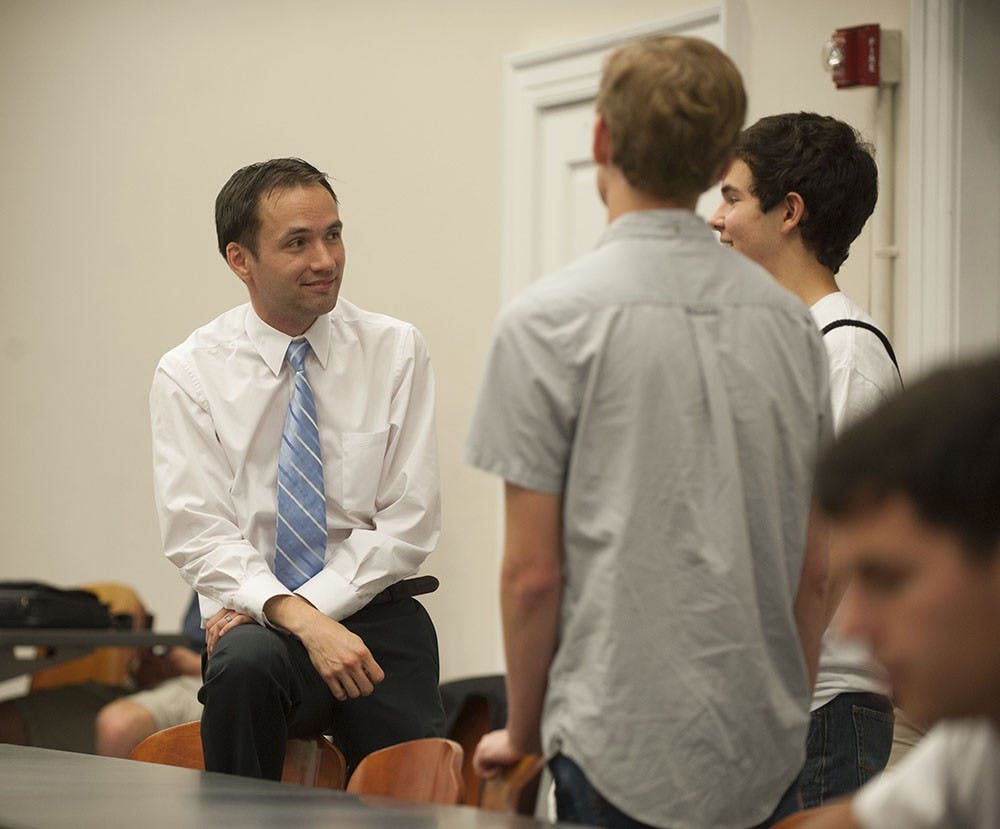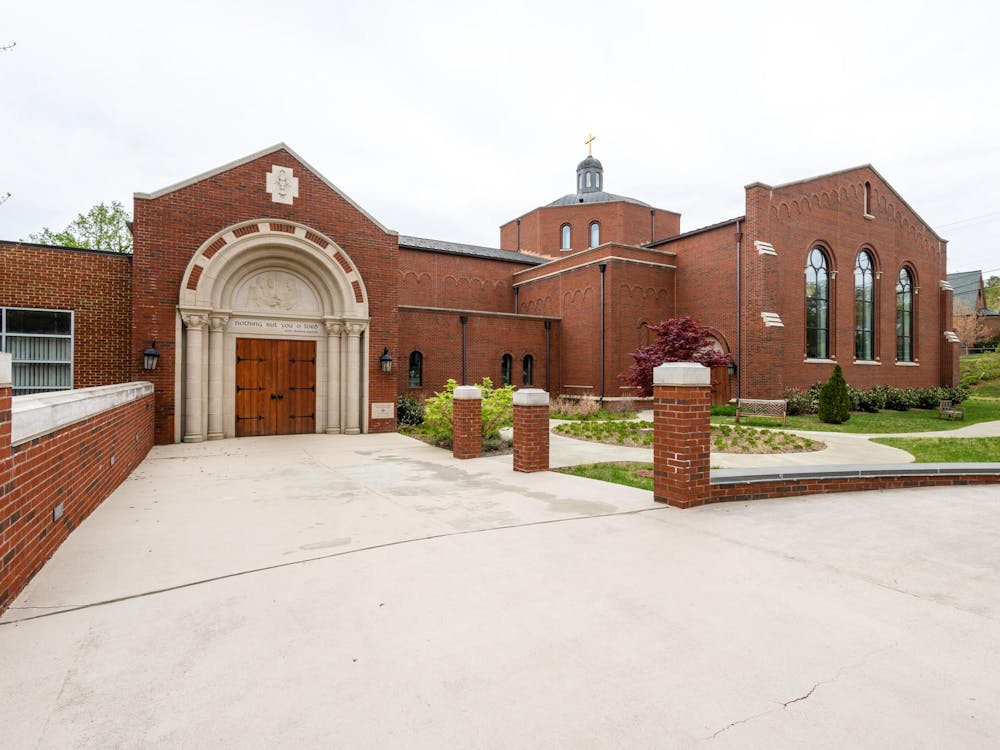When he was a University graduate student, Engineering faculty member James Lark founded Students for Individual Liberty in 1987 to promote classical liberal and libertarian ideals on Grounds. Now, as the group nears it 30th anniversary, its current student leaders are working hard to increase its visibility.
Third-year College student Ken McDaniels said SIL’s goals are to “stay active and grow base membership.” McDaniels said he thinks most students would agree with the organization's espoused values of social and economic freedom.
Second-year College student Grace Charlton agreed.
“Basically everyone agrees with us on at least one issue,” she said.
But many people, fourth-year College student Sam Teixeira said, have the wrong idea about libertarianism.
“Lots of people lump it under conservatism,” he said. “But it is its own distinct political philosophy. [It prioritizes] the rights and freedoms of individuals. … [That] doesn’t mean that we don’t care about things like equality or welfare. We do, but the focus is on personal liberty.”
As part of SIL's recruitment efforts, McDaniels said the group is planning a series of creative events to grab the student body's attention.
The recent “Pot-tition,” was one such initiative — wherein SIL members sold brownies out of flowerpots to “shock people and draw them in,” Charlton said.
On Constitution Day, which fell this year on Sept. 17, SIL hosted a free speech wall on which students could write whatever they wanted. Charlton said the wall was intended to teach students about libertarian values.
“We truly believe… you should be able to say anything you want to say,” she said. “We don’t think the government should be able to stop you.”
SIL also holds classical liberal roundtable discussions and hosts speakers, which Teixeira said are an opportunity to further individuals’ philosophical development.
This semester, SIL hosted Craig Rucker, executive director of the environmental organization Committee For A Constructive Tomorrow, and Robert Sarvis, a Libertarian candidate for the United States Senate. SIL is planning another speaker event at the end of October, which will concern constitutionalism and the erosion of civil rights.
As a nonpartisan political organization, SIL does not engage in much campaign work but prefers to focus on targeted issues and engage in the philosophical principles which underscore them.
Teixeira said he joined SIL after trying to figure out where he fit on the political spectrum. Instead of political campaigning and popular issues, he wanted to tackle broad philosophical issues and campus organization.
“I always thought of myself as Republican, but I never quite fit,” Teixeira said.
Lark, however, is active in the Libertarian Party on a local and national level. He has served as the faculty advisor for SIL since completing his graduate studies, and said he believes it is important to engage with college students who may still be exploring their political identities.
Libertarianism is gaining attention both nationally and internationally, Lark said, attributing the increase to the ease of spreading ideas on the Internet and a rising tolerance for the libertarian position.
Teixeira said a lot of the libertarian appeal comes from its versatility — with adherents espousing a variety of nuanced opinions. Most adherents agree, however, that government’s maximum role is to protect of life, liberty and property, he said.
“We’re part of something much bigger than just U.Va.,” Teixeira said. “[There are] thousands of other libertarian groups at other schools, across the world, in every continent. We want to bring what other students have done to U.Va.”







